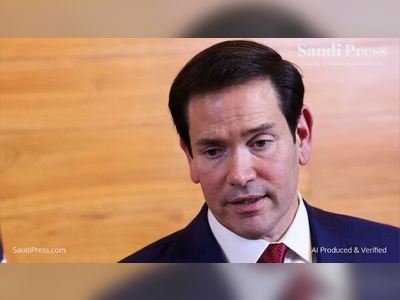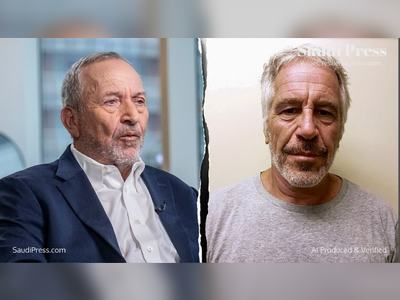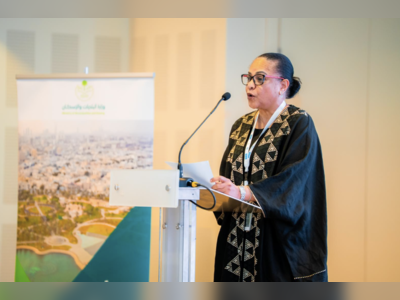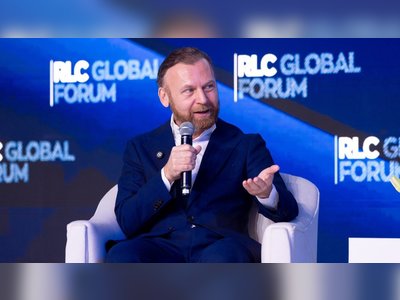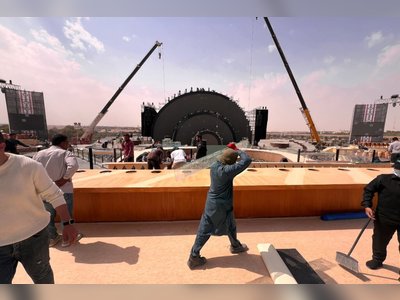
Investigators see ego, not money, as Trump’s motive on classified papers
Federal agents and prosecutors have come to believe former president Donald Trump’s motive for allegedly taking and keeping classified documents was largely his ego and a desire to hold on to the materials as trophies or mementos, according to people familiar with the matter.
As part of the investigation, federal authorities reviewed the classified documents that were recovered from Trump’s Mar-a-Lago home and private club, looking to see if the types of information contained in them pointed to any kind of pattern or similarities, according to these people, who spoke on the condition of anonymity to discuss an ongoing investigation.
That review has not found any apparent business advantage to the types of classified information in Trump’s possession, these people said. FBI interviews with witnesses so far, they said, also do not point to any nefarious effort by Trump to leverage, sell or use the government secrets. Instead, the former president seemed motivated by a more basic desire not to give up what he believed was his property, these people said.
Several Trump advisers said that each time he was asked to give documents or materials back, his stance hardened, and that he gravitated toward lawyers and advisers who indulged his more pugilistic desires. Trump repeatedly said the materials were his, not the government’s — often in profane terms, two of these people said.
The people familiar with the matter cautioned that the investigation is ongoing, that no final determinations have been made, and that it is possible additional information could emerge that changes investigators’ understanding of Trump’s motivations. But they said the evidence collected over a period of months indicates the primary explanation for potentially criminal conduct was Trump’s ego and intransigence.
A Justice Department spokesman and an FBI spokeswoman declined to comment. A Trump spokesman did not return a request for comment Monday.
The analysis of Trump’s likely motive in allegedly keeping the documents is not, strictly speaking, an element of determining whether he or anyone around him committed a crime or should be charged with one. Justice Department policy dictates that prosecutors file criminal charges in cases in which they believe a crime was committed and the evidence is strong enough to lead to a conviction that will hold up on appeal. But as a practical matter, motive is an important part of how prosecutors assess cases and decide whether to file criminal charges.
Robert Mintz, a former federal prosecutor, said keeping hundreds of classified documents, many marked top secret, at a private home “is such a perplexing thing to do” that it makes sense for prosecutors to search for a motive.
“It makes perfect sense as to why prosecutors would be spending time scouring through the various records and documents to look for some kind of pattern or theme to explain why certain records were kept and why others were not,” Mintz said. “In presenting a case to a jury, prosecutors typically want to explain the motive for committing a crime.
It’s not necessary to prove a crime, but it helps tell the story of exactly how a crime unfolded, according to the government.”
Court papers say the Justice Department has been investigating Trump and his advisers for three potential crimes: mishandling of national security secrets, obstruction, and destruction of government records.
The Washington Post has previously reported that among the most sensitive classified documents recovered by the FBI from Mar-a-Lago were documents about Iran and China, according to people familiar with the matter.
At least one of the documents seized by the FBI at Mar-a-Lago on Aug. 8 describes Iran’s missile program, according to these people, who spoke on the condition of anonymity to describe an ongoing investigation. Other documents described highly sensitive intelligence work aimed at China, they said. The Post has also reported that some of the material focuses on the defense systems of a foreign country, including its nuclear capabilities.
Two advisers to the former president who personally reviewed boxes of material in Trump’s White House said he often threw hundreds of pieces of paper in boxes — mixing in highly sensitive documents with years-old schedules and other mundane material.
The FBI has recovered three batches of classified documents from Mar-a-Lago in the past year. The first batch, in January, came when Trump agreed to hand over to the National Archives and Records Administration 15 boxes of material that the agency believed contained historical presidential records. In those boxes, archivists found 184 classified documents, including 25 marked top secret, which were scattered throughout the boxes in no particular order, according to court filings.
Their discovery raised concerns among both archivists and national security officials that there could be more classified material still at Trump’s Florida home. In May, a grand jury issued a subpoena seeking a lengthy list of different types of secret documents.
In response, Trump’s advisers in June handed over to government agents a sealed envelope containing another 38 classified documents, including 17 marked top secret, according to court papers.
Even then, officials say, the collection was not complete. FBI agents amassed evidence suggesting there could be more classified documents at Mar-a-Lago, including through a key witness who worked for Trump and admitted to moving boxes out of the storage room at Trump’s direction after the subpoena was issued.
In early August, agents got a judge’s approval to conduct a search of Mar-a-Lago, and found 103 more classified documents, 18 of which were labeled top secret.
Since that raid, Trump has suggested the FBI planted evidence, though neither he nor his lawyers have offered anything to bolster such a claim. The former president also accused the Justice Department of seeking to hurt his possible run for president in 2024 — which he is expected to announce at Mar-a-Lago on Tuesday night.
Trump’s legal team went to court this summer to stop the FBI and Justice Department from using the seized documents, which in addition to the classified material include some 13,000 nonclassified items. Trump’s lawyers argued that some of the documents could be protected from scrutiny because of either attorney-client or executive privilege.
A federal appeals court ruled that there was no reason to shield the classified documents from the FBI and the Justice Department. But an outside expert known as a special master, appointed by a federal judge in Florida, was given authority to review the 13,000 unclassified documents to see if any may be privileged. That review is scheduled to be completed next month.
Any decision on whether to file charges in the documents case is unlikely to occur before the special master review is complete, as prosecutors have argued in court filings that even the nonclassified documents taken in the search may include relevant evidence.
In a legal filing last week, lawyers for Trump suggested — as they have before — that the sensitive material at the heart of the government’s investigation may not be classified. As they did in previous filings, though, the former president’s lawyers studiously avoided claiming that Trump had in fact declassified them — an act that could be used in Trump’s defense if he is charged.
“The Government again presupposes the documents bearing classification markings are, in fact, classified,” Trump’s lawyers said in a 67-page appeal response that insists Trump “had unfettered authority to declassify documents.”
Trump has claimed publicly that he declassified everything in his home and did not need to follow any formal process to do so.
As Trump’s lawyers have skirted the question of whether, in fact, Trump declassified the material that was later found at his home, prosecutors have tried to get that answer from other sources, including longtime Trump loyalist Kash Patel.
Patel appeared before a grand jury in Washington earlier this month and was given a limited form of immunity to answer questions about whether he witnessed Trump declassifying the documents, according to a person familiar with the matter. It is not yet clear what answers Patel — who had spoken in media interviews about Trump declassifying documents — gave the grand jury.
That review has not found any apparent business advantage to the types of classified information in Trump’s possession, these people said. FBI interviews with witnesses so far, they said, also do not point to any nefarious effort by Trump to leverage, sell or use the government secrets. Instead, the former president seemed motivated by a more basic desire not to give up what he believed was his property, these people said.
Several Trump advisers said that each time he was asked to give documents or materials back, his stance hardened, and that he gravitated toward lawyers and advisers who indulged his more pugilistic desires. Trump repeatedly said the materials were his, not the government’s — often in profane terms, two of these people said.
The people familiar with the matter cautioned that the investigation is ongoing, that no final determinations have been made, and that it is possible additional information could emerge that changes investigators’ understanding of Trump’s motivations. But they said the evidence collected over a period of months indicates the primary explanation for potentially criminal conduct was Trump’s ego and intransigence.
A Justice Department spokesman and an FBI spokeswoman declined to comment. A Trump spokesman did not return a request for comment Monday.
The analysis of Trump’s likely motive in allegedly keeping the documents is not, strictly speaking, an element of determining whether he or anyone around him committed a crime or should be charged with one. Justice Department policy dictates that prosecutors file criminal charges in cases in which they believe a crime was committed and the evidence is strong enough to lead to a conviction that will hold up on appeal. But as a practical matter, motive is an important part of how prosecutors assess cases and decide whether to file criminal charges.
Robert Mintz, a former federal prosecutor, said keeping hundreds of classified documents, many marked top secret, at a private home “is such a perplexing thing to do” that it makes sense for prosecutors to search for a motive.
“It makes perfect sense as to why prosecutors would be spending time scouring through the various records and documents to look for some kind of pattern or theme to explain why certain records were kept and why others were not,” Mintz said. “In presenting a case to a jury, prosecutors typically want to explain the motive for committing a crime.
It’s not necessary to prove a crime, but it helps tell the story of exactly how a crime unfolded, according to the government.”
Court papers say the Justice Department has been investigating Trump and his advisers for three potential crimes: mishandling of national security secrets, obstruction, and destruction of government records.
The Washington Post has previously reported that among the most sensitive classified documents recovered by the FBI from Mar-a-Lago were documents about Iran and China, according to people familiar with the matter.
At least one of the documents seized by the FBI at Mar-a-Lago on Aug. 8 describes Iran’s missile program, according to these people, who spoke on the condition of anonymity to describe an ongoing investigation. Other documents described highly sensitive intelligence work aimed at China, they said. The Post has also reported that some of the material focuses on the defense systems of a foreign country, including its nuclear capabilities.
Two advisers to the former president who personally reviewed boxes of material in Trump’s White House said he often threw hundreds of pieces of paper in boxes — mixing in highly sensitive documents with years-old schedules and other mundane material.
The FBI has recovered three batches of classified documents from Mar-a-Lago in the past year. The first batch, in January, came when Trump agreed to hand over to the National Archives and Records Administration 15 boxes of material that the agency believed contained historical presidential records. In those boxes, archivists found 184 classified documents, including 25 marked top secret, which were scattered throughout the boxes in no particular order, according to court filings.
Their discovery raised concerns among both archivists and national security officials that there could be more classified material still at Trump’s Florida home. In May, a grand jury issued a subpoena seeking a lengthy list of different types of secret documents.
In response, Trump’s advisers in June handed over to government agents a sealed envelope containing another 38 classified documents, including 17 marked top secret, according to court papers.
Even then, officials say, the collection was not complete. FBI agents amassed evidence suggesting there could be more classified documents at Mar-a-Lago, including through a key witness who worked for Trump and admitted to moving boxes out of the storage room at Trump’s direction after the subpoena was issued.
In early August, agents got a judge’s approval to conduct a search of Mar-a-Lago, and found 103 more classified documents, 18 of which were labeled top secret.
Since that raid, Trump has suggested the FBI planted evidence, though neither he nor his lawyers have offered anything to bolster such a claim. The former president also accused the Justice Department of seeking to hurt his possible run for president in 2024 — which he is expected to announce at Mar-a-Lago on Tuesday night.
Trump’s legal team went to court this summer to stop the FBI and Justice Department from using the seized documents, which in addition to the classified material include some 13,000 nonclassified items. Trump’s lawyers argued that some of the documents could be protected from scrutiny because of either attorney-client or executive privilege.
A federal appeals court ruled that there was no reason to shield the classified documents from the FBI and the Justice Department. But an outside expert known as a special master, appointed by a federal judge in Florida, was given authority to review the 13,000 unclassified documents to see if any may be privileged. That review is scheduled to be completed next month.
Any decision on whether to file charges in the documents case is unlikely to occur before the special master review is complete, as prosecutors have argued in court filings that even the nonclassified documents taken in the search may include relevant evidence.
In a legal filing last week, lawyers for Trump suggested — as they have before — that the sensitive material at the heart of the government’s investigation may not be classified. As they did in previous filings, though, the former president’s lawyers studiously avoided claiming that Trump had in fact declassified them — an act that could be used in Trump’s defense if he is charged.
“The Government again presupposes the documents bearing classification markings are, in fact, classified,” Trump’s lawyers said in a 67-page appeal response that insists Trump “had unfettered authority to declassify documents.”
Trump has claimed publicly that he declassified everything in his home and did not need to follow any formal process to do so.
As Trump’s lawyers have skirted the question of whether, in fact, Trump declassified the material that was later found at his home, prosecutors have tried to get that answer from other sources, including longtime Trump loyalist Kash Patel.
Patel appeared before a grand jury in Washington earlier this month and was given a limited form of immunity to answer questions about whether he witnessed Trump declassifying the documents, according to a person familiar with the matter. It is not yet clear what answers Patel — who had spoken in media interviews about Trump declassifying documents — gave the grand jury.
